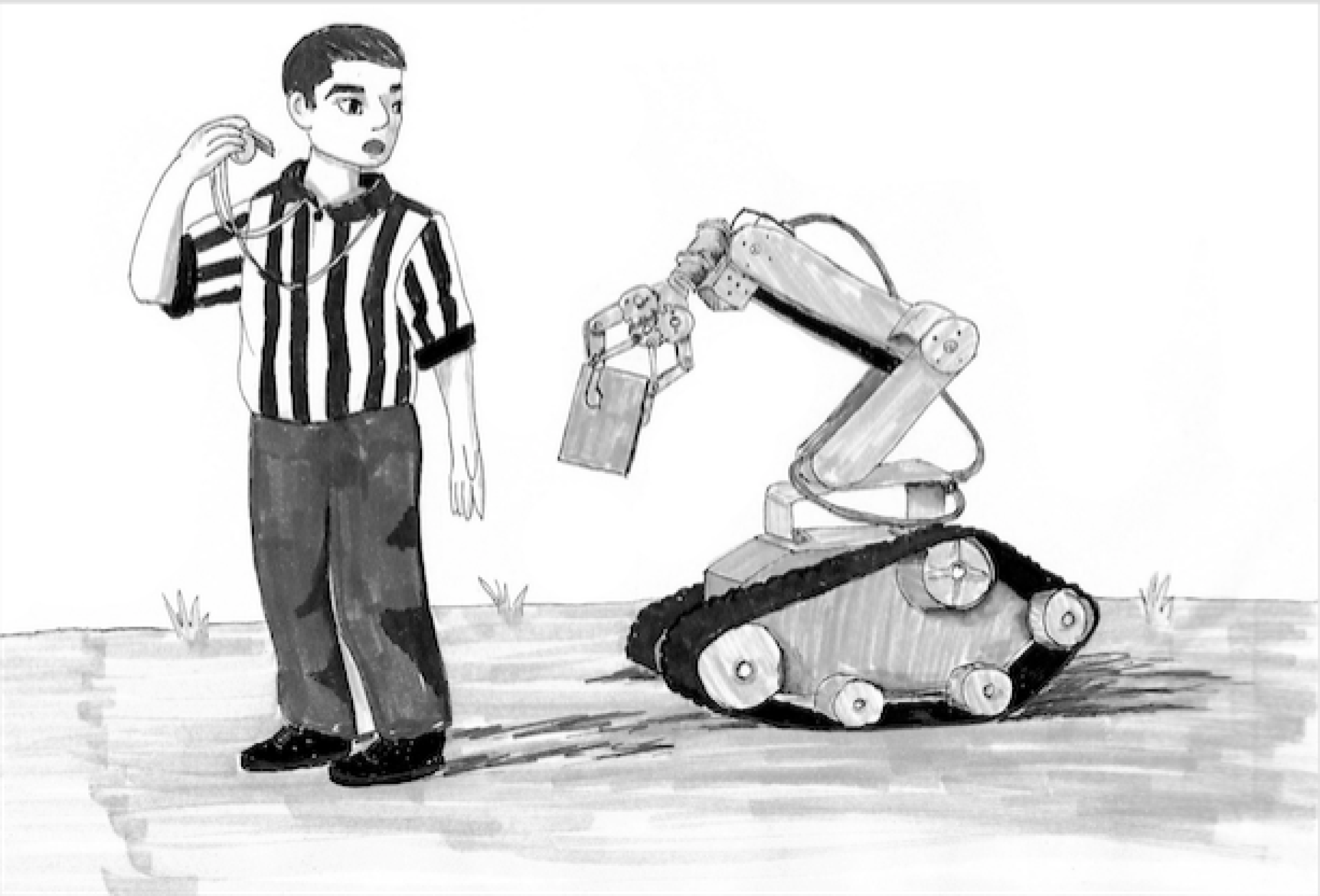Illustration by Gemma Fa-Kaji
Newer, faster, and more advanced technology is seeping into every corner of our lives. Whether it be in video games, self-driving cars, or gene editing, new technology is moving faster than ever. Except when it comes to sports. While the technology is largely available, sports leagues are reluctant to let this new technology reach their arenas.
Many leagues are nervous that the new technology would change the culture of sports, the very thing that has made them successful. But new technology could also make sports games more fair, less ambiguous, and more about the better team — not the officiating.
The need for change is as pressing as ever. Every game, commentators, players, and fans alike yell at the referee for missed calls, and they’re not always wrong. Unfortunately, fairness and flow do not come hand in hand. If fixing a decision via a video replay is the answer, it must be done efficiently.
In soccer, goal-line technology has been introduced in many games to ensure that if the ball passes the goal line, it is correctly ruled a goal. If the ball passes the line, a machine notifies the referee, sending a buzz into their watch. Goal-line technology epitomizes the efficiency and usefulness that technology could have in many sports.
Recently, there was an incident in Barcelona’s game against Valencia, where a shot clearly crossed the line but was not ruled a goal due to an absence of goal-line technology. The game ended in a tie, meaning Barcelona lost a valuable chance to put distance between them and second place Valencia.
On the other hand, the National Basketball Association (NBA) uses replays for almost everything, and the system is efficient. Replays are used to review last-second shots, last-second fouls, flagrant fouls, player altercations, as well as ten other situations. In the 2014-15 season, the average time for a replay was about thirty seconds, and there was an average of less than two replays per game, meaning that replays added a minute to the game while ensuring that the game was fair.
For the future of sports, there are few limits to the role technology could play. In Major League Baseball (MLB), they are discussing having a robot call balls and strikes in order to improve accuracy. However, that technology is not at a point where it would be more accurate than a human.
It is likely that sports will follow in the footsteps of our culture and will soon be filled with computers assisting decisions. Surely, athletes want to have the better team win, and when an opinion is unanimous, it usually comes along much more quickly. The problem will then be how long it takes to make the technology as efficient, accessible, and painless as possible.





